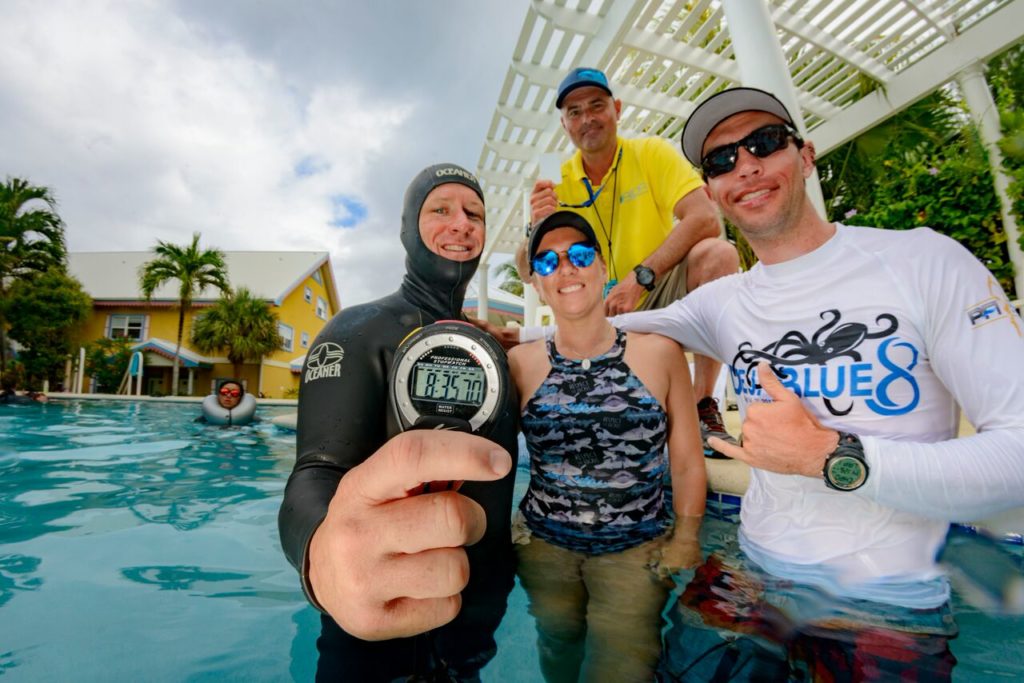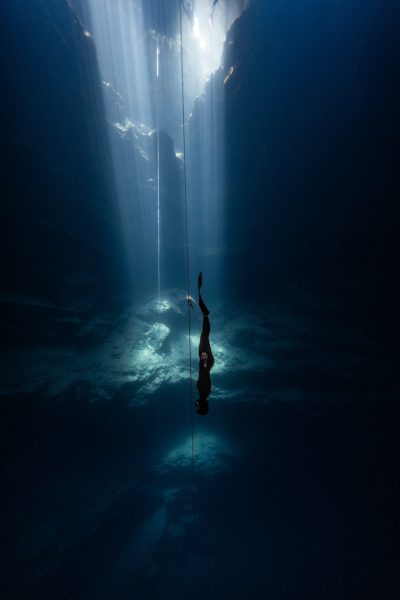Frequently Asked Questions
Can Anyone Freedive?
In order to be a freediver you must have a love of the water, strong swimming skills, and overall good health. With those pre-requisites intact, age is irrelevant.
Snorkeling is a great way to get introduced to being comfortable in the ocean. As you start to spend more and more time in the water you may find that while you like snorkeling, you really like to be under the water and checking everything out.
At that point you view the surface as the place where you rest and to get ready for what you really like to do, which is swim under water while holding your breath; once you reach this stage, congratulations you are a freediver!
Remember you should never dive alone.


How Can I Get Better At Freediving?
Freediving is one of the fastest growing water sports, because of this there are more and more freediving classes offered throughout out the U.S. If you want to improve your freediving ability the surest way to do that is take to take a freediving class. In these classes you will learn how to hold your breath longer, how to freedive deeper, and most importantly how to do so safely.
Is Freediving Dangerous?
When safety requirements are adhered to, freediving is quite safe. There are risks associated with freediving just like there are risks associated with swimming and scuba diving.
If you hold your breath too long, while freediving you could have a loss of motor control or a blackout. During a freediving class you would learn how to avoid this and how to help someone if this happened to them.
While freediving, always dive with a buddy, even better, a buddy trained in freediving rescue techniques. A good and skilled buddy will remain on the surface and watch you during your dive, prepared to grab you if needed. For deeper dives, your buddy will descend down and meet you when you return and escort you back to the surface. No matter the dive time or difficulty, your buddy should watch you for at least 30 seconds when you surface.
Please note that deeper dives are absolutely not suited for people without proper training, no matter the fitness level or other water sports experience.


I’m New To Freediving, Can I Attend A Freediving Competition?
Absolutely! If you are excited about freediving, one of the best things you can do is watch or participate in a freediving competition. You will find other freedivers who are passionate about the sport, as well as freedivers who have more experience; this is a great way to learn.
By attending a freediving competition you might see someone trying to break a USA Freediving record, and you also might see someone complete their first 66ft dive. Anyone with certified freedive training, no matter the level, and a medical release can compete in a Freediving Competition.
Only active USFA members will receive AIDA ranking.
